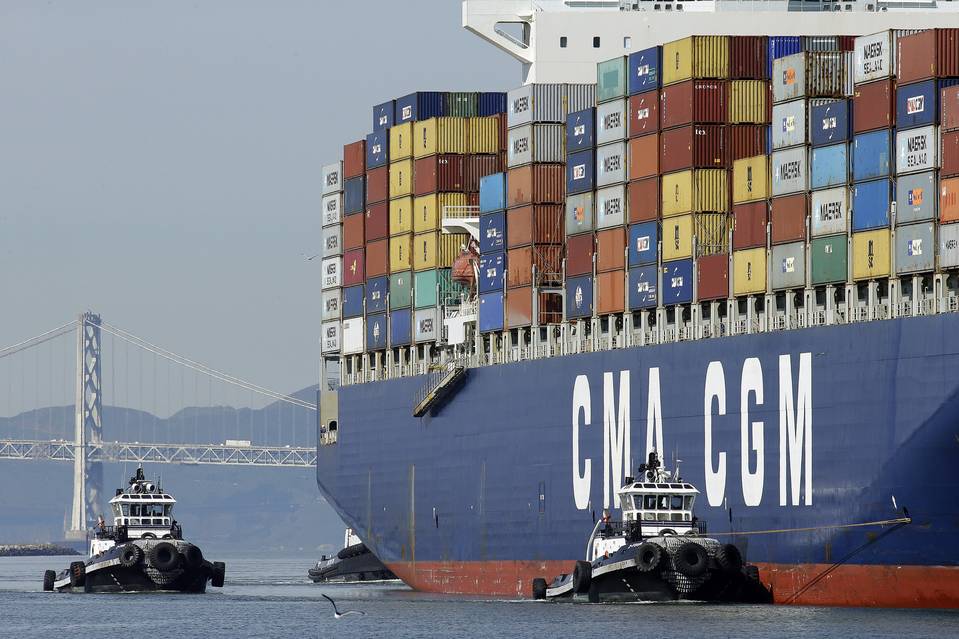- Government Stalls Revision of 41 Restricted Items’ List
Over a year after the Federal Government promised to review the 41 restricted items from accessing foreign exchange (forex) from the interbank rate, the interest charged on short-term funds among banks, indications have emerged that a revised list may not be released anytime soon.
This emerged despite assurances by the government to reduce pressure on the parallel market, an unofficial market for trading currencies, to encourage local production.
The restricted items include Rice, cement, palm kernel/palm oil products/vegetables oils, meat and processed meat products, vegetables and processed vegetable products, poultry chicken, eggs, turkey, private airplanes/jets, cold rolled steel sheets, wood particle boards and panels, textiles, plastic and rubber products, polypropylene granules, cellophane wrappers, soap and cosmetics as well as tomatoes/tomato pastes.
The Central Bank of Nigeria (CBN), the lender of last resort, justified the action saying that such imports led to manufacturing companies closing down their operations as they were local goods were being substituted with seemingly cheap imports while inadvertently exporting jobs and importing poverty to the country.
Indeed, an authoritative source from the CBN stated that while the concerns raised by MAN and the OPS on the 41 items are being reviewed, it discovered that many manufacturers preferred to import rather than produce locally even when obstacles were being removed.
The highly placed source, who prefers anonymity, stated that some manufacturers had accessed facilities to the tune of N3 billion without any form of security, while others who expressed interest to backwardly integrate their processes had no farms but only interested in continued importation of such goods.
The source noted that “despite claims about lack of access to forex, not less than 1,342 manufacturers and allied firms received $660.17 million from the CBN through Deposit Money Banks (DMBs) for importation of raw materials, plants and machinery in September.”
The source argued that government will be doing the economy a disservice if it yielded to pressure to withdraw restriction on some of the restricted items as they can be sourced and produced locally.
Many indigenous manufacturers are already threatening to exit from Nigeria over lack of access to forex and other financial support, but Government accused them of sabotage.
According to Government, those manufacturers threatening to leave the country are unpatriotic and only seek funds to continue importation rather than backwardly integrating their processes to enhance local production.
Reacting to the allegation, the President, Manufacturers Association of Nigeria (MAN), Dr. Frank Jacobs, said that while it may be true that some manufacturers are not sincere to their commitments to commence local production having enjoyed certain waivers and privileges, it may not be true to generalise that manufacturers are not sincere to the backward integration agenda.
This is because many members of MAN are already seeking alternative sources for their raw materials locally.
“I may not be able to hold brief for all manufacturers, but I do know that the area where some operators have enjoyed some concession is in the area of tomato production, even though there is not much to show for it. Others are backwardly integrating as that is the only alternative due to the scarcity of foreign exchange,” Jacobs added.
Private individuals under the Organised Private Sector (OPS) and the manufacturers had differed with the apex bank on the classification and definition of some of the products restricted from access to forex market, stating that some of the items are raw materials used in the course of production in their factories.
MAN President, Jacobs, noted that about 680 HS codes were identified following the breakdown and classification of the 41 restricted items by the CBN from the official forex window into HS codes.
Of the 680 HS codes, Jacobs explained that 95 HS codes are raw materials used in the course of production in the factories and they are presently restricted from access to forex market.
This is meant to identify some of the 41 items restricted from the subsidised official forex window that are believed to form part of the raw materials used in local production by manufacturing firms.
Indeed, Vice President, Prof. Yemi Osinbajo, while speaking at the yearly general meeting of the Manufacturers Association of Nigeria (MAN) in Lagos, had noted that negotiations are ongoing with the CBN.
Meanwhile, some of the manufacturers decried the lack of fiscal policy framework by the Government to encourage economic activities through spending and tax incentives, describing it as measures that guarantee their investments in the country.
The Director-General of the non-profit premier chamber of commerce in Nigeria, Lagos Chamber of Commerce and Industry (LCCI), Muda Yusuf, decried the lack of a fiscal policy framework that will guide operations in the real sector.
According to him, if the fundamentals are not right, backward integration will not work as so many linkages in the value-chain are missing.
“We need to build capacity of investors in the value-chain for backward integration to be successful. Except for the big manufacturers with huge capacity, it could be too much for industrialists to embark on the process with little or no support. Government needs to embark on a holistic and integrated approach as some of the raw materials are not easy to get as it is being described,” Yusuf said.

 Forex3 weeks ago
Forex3 weeks ago


 Naira2 weeks ago
Naira2 weeks ago
 Billionaire Watch2 weeks ago
Billionaire Watch2 weeks ago




 Naira2 weeks ago
Naira2 weeks ago




 Naira2 weeks ago
Naira2 weeks ago




 Naira4 weeks ago
Naira4 weeks ago


 Naira7 days ago
Naira7 days ago
 Banking Sector4 weeks ago
Banking Sector4 weeks ago






















